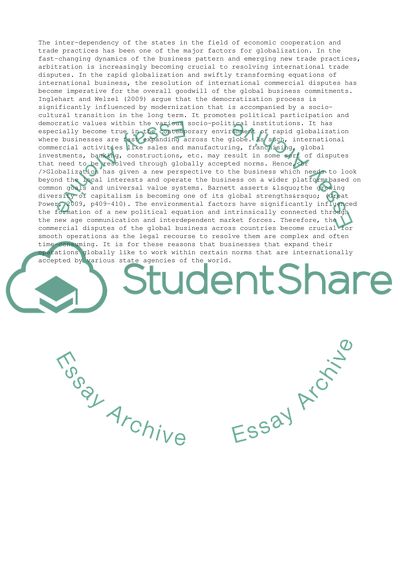Cite this document
(International Dispute Resolution and Policy Framework Coursework, n.d.)
International Dispute Resolution and Policy Framework Coursework. https://studentshare.org/business/1739509-business-politicspolicy-paper
International Dispute Resolution and Policy Framework Coursework. https://studentshare.org/business/1739509-business-politicspolicy-paper
(International Dispute Resolution and Policy Framework Coursework)
International Dispute Resolution and Policy Framework Coursework. https://studentshare.org/business/1739509-business-politicspolicy-paper.
International Dispute Resolution and Policy Framework Coursework. https://studentshare.org/business/1739509-business-politicspolicy-paper.
“International Dispute Resolution and Policy Framework Coursework”. https://studentshare.org/business/1739509-business-politicspolicy-paper.


